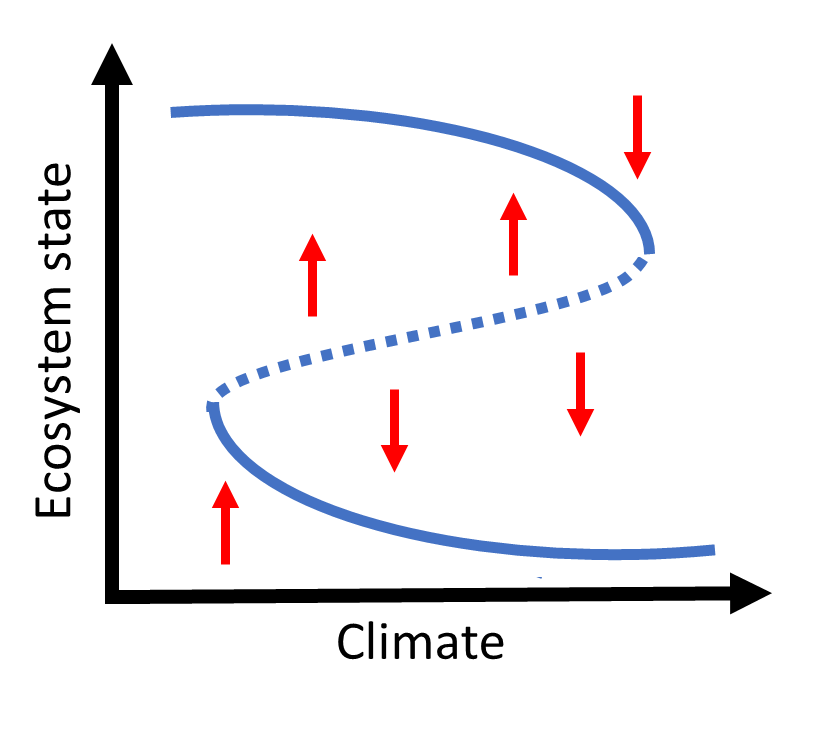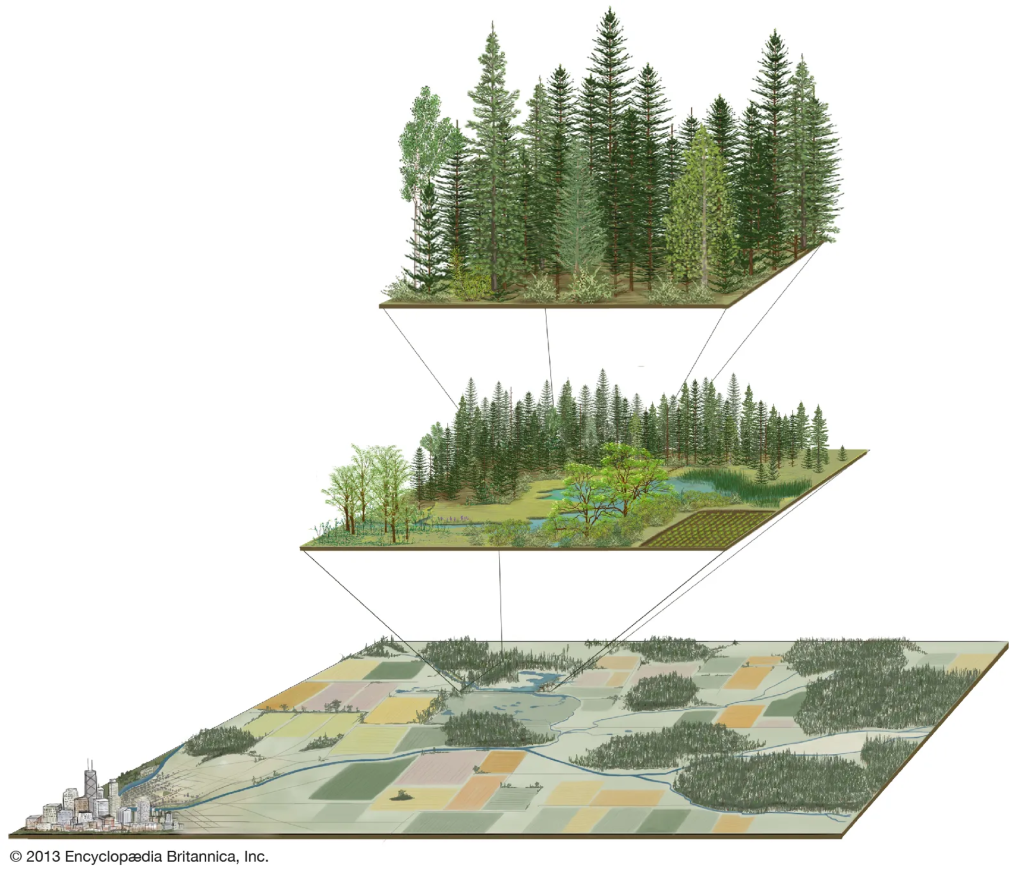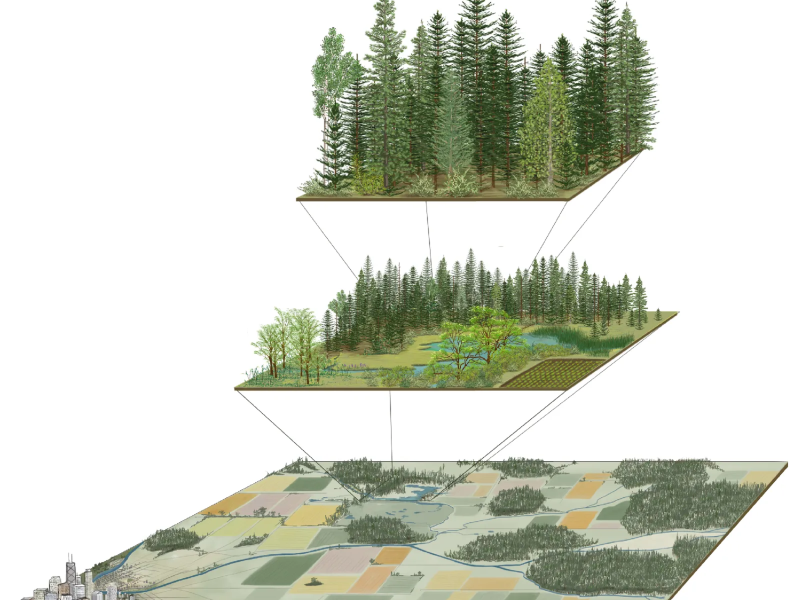MSc thesis: Two projects on Ecosystem Resilience
Background
Ecosystems can have multiple alternative stable states. When ecosystems are shifted from their current stable state by a disturbance, they either recover back or transition into a different stable state. We aim to estimate stable states and their proprieties which can be used to predict responses of ecosystems to disturbances. To do so, we (the ECoMAP team) developed a multinomial regression model. Below are two potential topics for theses which use and validate this model:
 1. How well does snapshot data predict ecosystem resilience?
1. How well does snapshot data predict ecosystem resilience?
Snapshot data has been used for estimation of ecosystem resilience. This is a powerful approach since it enables to estimate future dynamics of a system (based on knowledge of its stable states and their proprieties) from present data. Although it is well theoretically based, the approach has not been systematically tested. This project aims to set a solid basis for this area of research by testing the potential of snapshot data for estimation of ecosystem resilience and its limitations.
Snapshot data from a time-series (e.g., the Normalized Difference Vegetation Index, NDVI) will be taken and used to estimate stable states along climatic gradients using the multinomial model. Predicted resilience of individual ecosystems will be contrasted with observed changes within the time-series.
2. Is ecosystem resilience scale dependent?
In studies of stable states and their resilience, it is often assumed that the results are not sensitive to used scale. However, on different scales, results of different processes can be visible, so this assumption is likely violated. This project will use data with different aggregation to explore the effects of scale on estimation of stable states of ecosystems. It will describe how stable states and their proprieties change with scale.
Fine scale (satellite) data will be used to estimate stable states with different degree of data aggregation. Change in stable states and their proprieties will be assessed along the aggregation gradient.
Both projects are macroecological. They involve work with large spatial datasets, meaning you will gain vaulable experience experience with global data sources, data manipulation, and postprocessing of outputs of statistical modelling. The model is implemented in NIMBLE, therefore you will even gain insights into the basics of Bayesian statistics. Finally, both projects have great potential to result into scientific publication.
Prerequisites
- Background in (macro)ecology
- Programming in R
- Basic knowledge of statistics
Contact information:
Does this sound interesting? Would you like to know more, or apply for this project? Contact:
- Adam Klimes (adam.klimes@uib.no) and
- Alistair Seddon (alistair.seddon@uib.no)


Leave a Reply